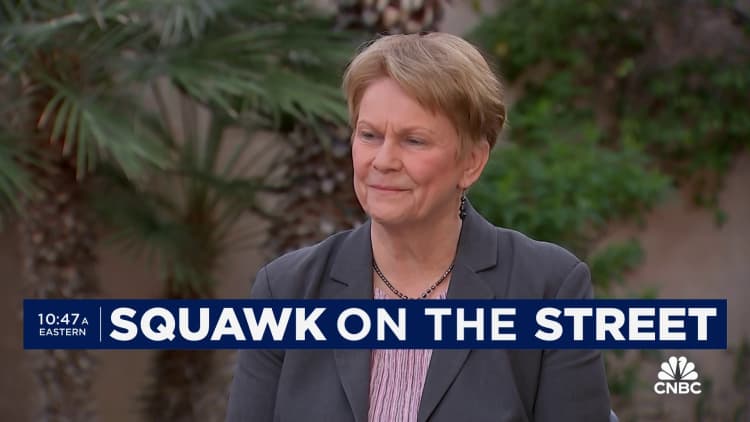
watch
now
The
oil
market
will
face
a
supply
shortage
by
the
end
of
2025
as
the
world
fails
to
replace
current
crude
reserves
fast
enough,
Occidental
CEO
Vicki
Hollub
told
CNBC
on
Monday.
About
97%
of
the
oil
produced
today
was
discovered
in
the
20th
century,
she
said.
The
world
has
replaced
less
than
50%
of
the
crude
produced
over
the
last
decade,
Hollub
added.
“We’re
in
a
situation
now
where
in
a
couple
of
years’
time
we’re
going
to
be
very
short
on
supply,”
she
told
CNBC’s
Tyler
Mathisen
at
the
Smead
Investor
Oasis
Conference
in
Phoenix.
For
now,
the
market
is
oversupplied,
which
has
held
oil
prices
down
despite
the
current
conflict
in
the
Middle
East,
Hollub
said.
The
U.S.,
Brazil,
Canada
and
Guyana
have
pumped
record
amounts
of
oil
as
demand
slows
amid
a
faltering
economy
in
China.
But
the
supply
and
demand
outlook
will
flip
by
the
end
of
2025,
Hollub
said.
“The
market
is
out
of
balance
right
now,
but
again,
this
is
a
short-term
demand
issue,”
Hollub
said.
“But
it’s
going
to
be
a
long-term
supply
issue,”
she
said.
OPEC
is
forecasting
global
oil
demand
will
grow
by
1.8
million
barrels
per
day
in
2025
on
a
solid
economy
in
China,
outstripping
crude
production
growth
of
1.3
million
barrels
per
day
outside
the
cartel.
The
forecast
implies
a
supply
deficit
unless
OPEC
ditches
current
production
cuts
and
boosts
its
own
output.
West
Texas
Intermediate
and
Brent
futures
finished
out
2023
more
than
10%
lower
as
record
production
in
the
U.S.
and
a
weakening
economy
in
China
weighed
on
prices.
U.S.
crude
and
the
global
benchmark
are
up
more
than
1%
so
far
this
year
with
WTI
on
Monday
settling
at
$72.78
a
barrel
and
Brent
at
$77.99
a
barrel.
Hollub
told
CNBC
in
December
that
Occidental
expects
WTI
to
average
around
$80
in
2024.
Don’t
miss
these
stories
from
CNBC
PRO:
